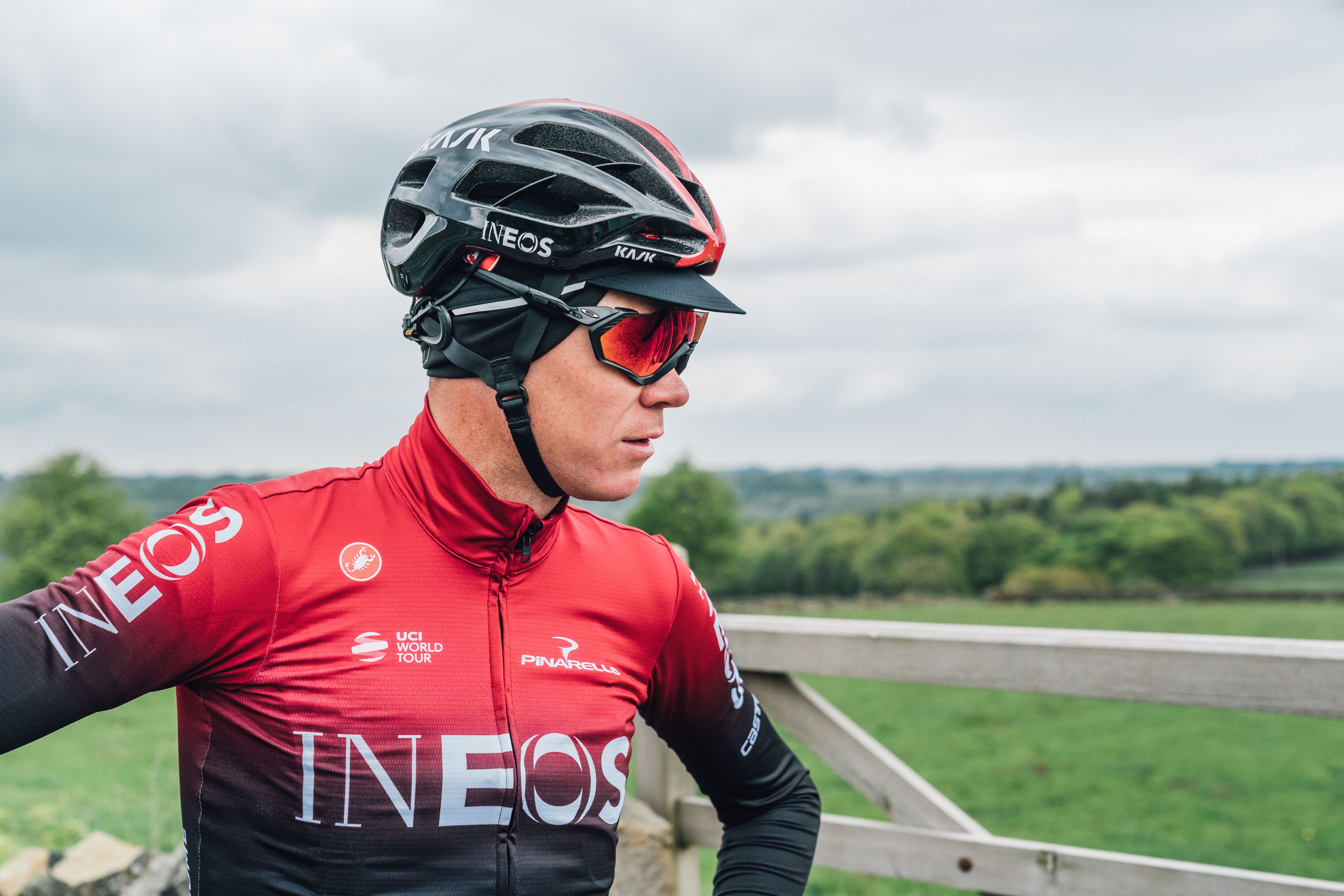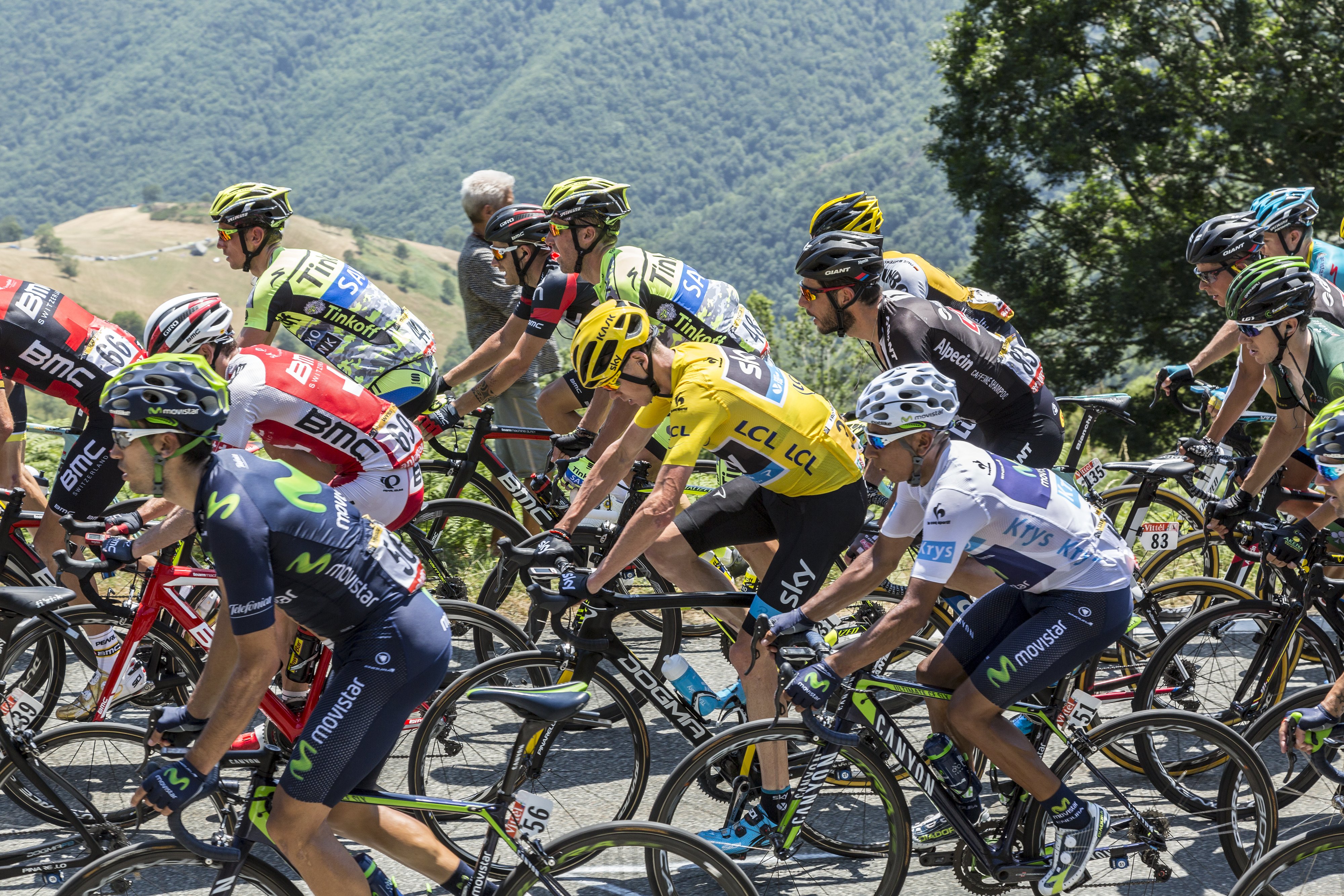
News that Team Sky has now become Team Ineos will have passed few avid cyclists by. Whether this is a good thing or not depends on how you look at it. Is this great news for British cycling, or have we sold ourselves down the (polluted) river?
With sales of $60 billion, Ineos is basically the biggest private UK firm you’ve never heard of – until it sponsored a cycling team. Its bread and butter is the manufacture of petrochemicals, speciality chemicals and oil products, including plastics. And an awful lot of them: the owner, Sir Jim Ratcliffe, is Britain’s richest man. As the Sunday Times put it a couple of years ago: “You may not have heard of Jim Ratcliffe, but he’s in your life from the moment you wake up until you go to sleep. He is responsible for the plastic cap on your toothpaste tube and the chlorine that cleans the water you use to brush your teeth.”
And now he is responsible for our team’s hopes at this year’s Tour de France. Some say Ratcliffe is a safe pair of hands: he has very deep pockets, allowing Sir Dave Brailsford to put together the best possible team to challenge for the major Tours. But the investment should not end there: Sky initially focused on grassroots cycling in order to change the fabric of the sport, something that Ineos should not forget as it basks in the (likely continued) success of an elite team that is the envy of the world.
And there is a long way to go on that front if YouGov’s poll in February is anything to go by. Cycling was Brits’ least favourable mode of transport, behind even coaches. Yes, coaches. And they didn’t just dislike the idea, they really disliked it: “Having to ride by bicycle was the only form of transport where those who disliked it were more likely to have a ‘very unfavourable’ (29%) view than a ‘somewhat unfavourable’ one (20%),” noted the pollsters.
The other way to look at Ineos’s sponsorship of this team is that of an extreme mismatch. As the former Green Party leader Natalie Bennett tweeted: “A low-carbon, energy-efficient method of transport in #cycling & proponent of #fracking, #plasticpollution and #climateinaction in @Ineos.”
I spoke to a few sponsorship experts for a recent article for Transform magazine, and they were baffled too. Indeed, let’s not forget that under Sky’s ownership the British team – and its now familiar and famous faces including Chris Froome and Geraint Thomas – had fronted the media company’s 2018 Ocean Rescue campaign, an initiative all about ocean health and pollution that the Marine Conservation Society called “genuinely ground-breaking”. The likes of Thomas wore cycling shirts with a whale logo and the hashtag #passonplastic during last year’s Tour de France.

Ineos, on the other hand, is one of those trying to undo all this good work – at least according to its detractors. This is a firm that actually produces the tiny pellets used to make almost all plastic products. These so-called “nurdles” are only the size of a lentil but up to 53 billion of them (35 full tanker loads) could be “escaping” every year in the UK alone, according to research by the Scottish environmental charity Fidra, in 2016. They end up everywhere: in 352 global “Nurdle Hunts” that took place in February, they were found from Galloway to the Galapagos. They float around the sea soaking up various toxins in the surrounding water before being gobbled up by fish. This is not a good thing.
Ineos says it is aware of and has been trying to tackle it “for years”. And yet the Firth of Forth around Grangemouth, where Ineos has a major site, remains a “hotspot” for the pellets.
Plastic isn’t the only problem with Ineos, either: it also wants to undertake fracking in the UK so it can produce even more plastic, more cheaply. Froome and classics legend Fabian Cancellara have suggested the criticism of Ineos is unfair: the former highlighted the energy companies already sponsoring teams, whilst the latter (reportedly) suggested protesters should shut up and focus on their own recycling habits. (Having lived with an environment campaigner I’ve often wanted to tell them to shut up, but that’s because they’ve been telling me off for putting the plastic in the wrong bin).
Sir Dave wants us to give them a break, too. “I’m not an expert in chemicals, I’m an expert in trying to make Chris ride his bike faster,” he said as the team geared up for its first appearance at the Tour de Yorkshire, a county where – and you couldn’t make this up – Ineos wants to run fracking wells.
“When I did come to educate myself,” Sir Dave continued, “I realised there’s a very simplistic view and when you dive down into it and take the effort you can find out there’s a very different view. I’m very comfortable with the situation we’re in.” That’s more than can be said for the residents of Yorkshire if Ineos gets its way (fracking has already caused tremors above the legal threshold in Blackpool).
Ok, so I sound like one of those Extinction Rebellion campaigners. However, I tried to “dive down into” the world of Ineos and hit a brick wall. I called the company’s PR firm and sent a number of questions relating to its sustainability strategy. My email, along with the follow-ups, was ignored.
Perhaps Ineos is not used to the scrutiny? But as its new charges race up and down mountains all over the globe, the probing and protests will only intensify. At least this is a team with vast experience in reputation management. The “cleaner than clean” halo slipped from Team Sky regardless, so why on earth do they want to get into bed with a corporate as dirty as this one? Money talks, that’s why.
What are your thoughts on the matter? Let us know in the comments.